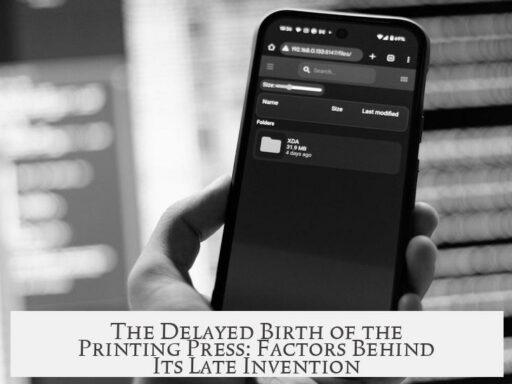Anne of Cleves could have remarried after her annulment, as there appears to be no legal restriction preventing her from doing so. Historical records do not indicate any formal prohibition against remarriage in her case, unlike some annulled or widowed queens who faced legal or social barriers. Despite this freedom, Anne chose not to wed again. Several factors influenced her decision, rooted in her unique position and the political context of the time.
Following the annulment of her marriage to Henry VIII, Anne was bestowed the rank of “the King’s Beloved Sister.” This status came with significant benefits. She received her own household, commanding autonomy over servants and estates. Her financial situation was secure, as the king granted her property and income, ensuring she did not rely on a husband for support. This independence was rare for women in the Tudor period, especially former queens.
Remarriage could have jeopardized Anne’s autonomy. Unlike her newfound royal independence, marrying would place her under the authority of a husband, potentially stripping her of control over her property and finances. This loss of personal power was a considerable disadvantage, discouraging her from entering another marriage.
Political and social risks further diminished the appeal of remarriage. Anne’s proximity to the English crown made her a figure of political interest. Any new husband might be seen as attempting to leverage Anne’s royal connection. Given Henry VIII’s history of swift and often brutal treatment of those close to him, a suitor would face danger. The unpredictable nature of court politics likely served as a deterrent both for Anne and her potential suitors.
Rank also complicated marriage prospects. Anne was born into German nobility as a member of the House of Cleves, making her socially superior to most English noblemen. This imbalance made it difficult to find a husband of appropriate rank within England. Outside England, her prospects diminished because, after her annulment, she lacked the patronage and family dependence that typically facilitated arranged marriages at her level.
There is no surviving personal testimony from Anne about her views on remarriage. Like many women of the Tudor era, her private feelings remain undocumented. The absence of letters or records means historians must rely on circumstantial evidence and comparisons to other historical figures to infer motives. Therefore, her true reasons for remaining unmarried are open to interpretation but remain speculative.
Comparatively, Catherine of Valois, widow of Henry V, married Owen Tudor in secret after widowhood despite laws and social conventions discouraging remarriage without royal consent. This marriage likely had a romantic motivation but was risky and hidden at the time. In contrast, Anne’s public status and security seem to have allowed her the freedom to reject marriage entirely without social stigma.
Modern assumptions about remarriage, romance, and personal happiness should be tempered by an understanding of the period’s culture. The contemporary notion that all individuals seek remarriage for love or companionship does not align with Tudor societal norms. Women of Anne’s stature often prioritized security, rank, and political considerations over personal romantic desires.
| Factor | Impact on Anne’s Remarriage |
|---|---|
| Legal Possibility | No formal restrictions; remarriage allowed |
| Royal Position | Independent, with own household and income |
| Autonomy | Risk of losing power if remarried |
| Political Risk | Potential danger from courting suitors near the king |
| Rank and Suitability | No easy match of equal rank available |
| Personal Wishes | Unknown; no personal records |
- Anne of Cleves had the legal freedom to remarry after her annulment.
- She retained a privileged and independent position as “the King’s Beloved Sister.”
- Remarriage risked the loss of her autonomy and financial independence.
- Political implications made remarriage a potentially dangerous move.
- Her high rank complicated finding a suitable, equal-status husband.
- No personal records clarify her feelings or reasons for not remarrying.
Could Anne of Cleves Have Remarried After Her Annulment?

Here’s the quick answer: yes, Anne of Cleves could have remarried after her annulment. There was no legal bar stopping her from doing so. But here’s the twist — she didn’t. Why not? The reasons are as interesting as the question itself and go beyond simple legalities.
Let’s dive into the royal drama and social puzzle that shaped Anne’s life post-annulment. Spoiler: It wasn’t a lack of suitors or law; it was more about power, rank, and her own independence.
The Legal Landscape: No Chains on Anne’s Freedom
First off, the law was on Anne’s side. Nothing stopped her from marrying again. You might imagine a queen annulled by King Henry VIII facing a lifetime ban from love and matrimony, but that’s not the case. History doesn’t show any legal restriction preventing her future marriages. So, if Anne wanted to say “I do” again, she absolutely could have.
But laws aren’t everything. Anne’s decisions had more to do with strategy and status than just legal permission.
Anne’s Comfortable New Role: The King’s ‘Beloved Sister’
After Henry VIII annulled their marriage in 1540, Anne didn’t fade into obscurity. Far from it. She gained something many women of her time could only dream of: autonomy. She was given her own household and a generous allowance. She became the king’s “beloved sister,” carving out a niche with plenty of property and money. Not too shabby for a cast-off queen.
This new status meant she was financially independent—a rare luxury for a woman in the 16th century. Marrying again would risk all of this. Why give up such freedom for an unknown husband who’d hold authority over her?
Why Risk Losing Her Autonomy?

In Tudor England, marriage meant a woman’s independence often vanished. The husband held legal authority over his wife’s property and decisions. Anne understood this. A second marriage could have stripped away the financial independence and comfortable courtly life she enjoyed. Was traded autonomy worth it?
Probably not, especially when she was already provided for by the king.
Playing the Political Game: Marrying Was Risky Business
Marrying again would also bring political headaches. Anne was dangerously close to the king — a monarch notorious for his changing loyalties and mercurial temper. Any new husband might be seen as a threat to the crown or an opportunist after royal favor. That put Anne in a tricky position.
Furthermore, any prospective husband risked a scandal or worse, losing the king’s favor. Anne’s position was precarious but secure; remarriage could have jeopardized that.
Her Rank Made Arranging a Match Difficult
Here’s another curveball: Anne’s rank was *higher* than most English nobles. A princess of the House of Cleves, she outranked many potential suitors. This made finding a ‘suitable’ match complicated. Few men could compete with her pedigree.
On top of that, after her annulment, Anne was no longer under her family’s control, reducing her ability to negotiate foreign alliances that might have arranged a prestigious marriage abroad. The best of both worlds — rank and independence — made remarriage complicated indeed.
But What About Anne’s Own Feelings?

This is where history gets mysterious. There’s a distinct silence regarding Anne’s personal feelings or reflections on her annulment and remarriage options.
Records from this era rarely reveal women’s inner lives, and Anne is no exception. No diaries, letters, or direct accounts shed light on why she chose not to remarry. Did she want to? Was she bitter about the annulment? Or was she content with her role? We just don’t know.
Comparison: Catherine of Valois’s Secret Second Marriage
Looking at contemporaries might offer some clues. Catherine of Valois, widow of Henry V, secretly married Owen Tudor despite laws and political risks. That marriage was hidden for a while, hinting at personal, possibly romantic motivations. Yet even Catherine faced the complex stakes of rank, royal approval, and personal desire.
This comparison shows that royal women’s marital choices were fraught with more than romantic feelings; they were shaped by politics, reputation, and survival.
Rethinking Modern Assumptions About Romance and Remarriage
We often assume that second marriages are fueled by romance or that being single means loneliness. But the Tudor era challenges this view. Anne’s situation reminds us that not all women wanted or needed marriage to be fulfilled. Independence and security mattered enormously.
Anne might have been perfectly satisfied with her status and life as the king’s sister—not the upset, jilted ex-queen craving love or remarriage. That’s a powerful reframing of what life after annulment could mean.
In Conclusion: Anne Could Have Remarried — But She Didn’t
So, can we answer clearly whether Anne of Cleves could have remarried? Absolutely. She could.
Did she? No.
Why? Because her position gave her security, autonomy, and status that remarriage would threaten. The political dangers, high rank, and lack of suitable matches also played big roles. Plus, we just don’t know her personal feelings, and maybe she simply preferred her unique path.
Anne’s story reminds us that marriage isn’t the only route for a woman’s power or happiness — even in the 16th century. Sometimes, the best ‘match’ is freedom itself.
Would you trade freedom for love? Anne of Cleves didn’t. And history shows us why that was a wise decision.




